Climate Culture Index, 2024
Rare
07 November, 2024
Overview
Background
Understanding the public’s opinions and beliefs towards climate change and climate action can inform the development of behavior-change campaigns and support tailored communication strategies. However, previous studies have mostly focused on examining trends in climate policy support, risk perceptions, or broad beliefs around climate change.
The Climate Culture Index (CCI) fills this gap by tracking key indicators that were found to support behavior change for a set of high-impact climate-mitigating behaviors. The CCI is designed to measure changes in these indicators over time, helping us understand potential shifts in the American public’s beliefs around climate behaviors.
Prior studies:
In this study, we measured beliefs and psycho-social states for the following seven behaviors:
- Eat less beef
- Reduce food waste
- Buy an Electric Vehicle (EV)
- Install solar panels
- Sign up for community solar
- Buy carbon offsets
- Install a heat pump
The survey instrument is available here.
Climate Culture Index
How we did this
In April 2024, we surveyed adults online from the United States (n = 1,795), the greater Boston area (n = 1,015), and the greater Denver area (n = 1,064), quota-matched to each geography of interest on demographic variables, including age group, gender, and ethnicity.
The national study was designed to oversample Black or African American and Hispanic adults. For the analyses, the sample was weighted using survey weights to be representative of the US adult population in age group x sex x ethnicity, Hispanic/non-Hispanic origin, annual household income before taxes, state population, political viewpoint, and the segments of Global Warming’s Six Americas.
Behavioral measures
For the seven climate behaviors, we measured ten indicators identified as either important enablers or predictors of climate action:
- Consideration
- Whether the person has considered adopting the behavior in the
past
- Before taking this survey, have you ever considered getting a fully electric car? [Yes or No]
- Whether the person has considered adopting the behavior in the
past
- Reported adoption
- Reported adoption of the behavior
- Does your household have solar panels installed to get electricity? [Yes or No]
- Reported adoption of the behavior
- Reported intention
- Reported intention to perform the behavior in the near
future
- How likely is it that you will limit your beef consumption in the next 12 months? [0%-100%]
- Reported intention to perform the behavior in the near
future
- Belief that others have adopted
- Perceived number of others that have adopted the behavior
(empirical expectations)
- Imagine 10 households you know. If you had to guess, how many of them do you think get their electricity from community solar? [0-10]
- Perceived number of others that have adopted the behavior
(empirical expectations)
- Belief that others should adopt
- Beliefs that other people should adopt the behavior because it
is the right thing to do (personal normative beliefs)
- Do you think that people should purchase carbon offsets because it is the right thing to do? [Yes or No]
- Beliefs that other people should adopt the behavior because it
is the right thing to do (personal normative beliefs)
- Beliefs that others think people should adopt
- Perceived number of others that think one should adopt the
behavior because it is the right thing to do (normative
expectations)
- Imagine 10 people you know. If you had to guess, how many think that people should use an electric heat pump for heating and cooling because it is the right thing to do? [0-10]
- Perceived number of others that think one should adopt the
behavior because it is the right thing to do (normative
expectations)
- Self-efficacy
- A belief in one’s ability to adopt the behavior
- How confident are you in your ability to purchase and drive a fully electric car? [5pt Likert, Extremely confident - Not at all confident]
- A belief in one’s ability to adopt the behavior
- Outcome efficacy
- A belief that adopting the behavior carries climate-mitigating
benefits
- How confident are you that you driving a fully electric car will reduce your individual carbon emissions? [5pt Likert, Extremely confident - Not at all confident]
- A belief that adopting the behavior carries climate-mitigating
benefits
- Personal benefit
- Stated personal benefit as the result of adopting the
behavior
- How much do you think limiting your beef consumption would benefit you personally? [5pt Likert, Benefit me a lot - Not benefit me at all]
- Stated personal benefit as the result of adopting the
behavior
- Perceived ease of adoption
- Reported ease in adopting the behavior
- How difficult (in terms of time, effort, or inconvenience on your part) would it be for you to get your electricity from community solar? [0%-100%]
- Reported ease in adopting the behavior
Opinions about climate policies
For each behavior, we also included 4 policy-related measure: policy support, perceived policy support, openness to learn about the policy, and openness to contact a representative to express support for the policy:
- Eat less beef
- Your state increases the availability of vegetable and plant-based options in state-owned or operated facilities, such as public schools, universities, and healthcare facilities
- Reduce food waste
- The federal government establishes a uniform food date labeling system to help consumers make accurate decisions about discarding food
- Buy an Electric Vehicle (EV)
- Your state provides an upfront cash rebate for the purchase or lease of a fully electric vehicle
- Install solar panels
- When solar panels produce more electricity than a home consumes, your utility offers to buy that excess electricity, lowering the homeowner’s utility bill
- Sign up for community solar
- Your utility guarantees households who sign up for community solar energy at least 5% savings on their annual electricity cost
- Buy carbon offsets
- The federal government requires all travel providers to offer customers an option to purchase carbon offsets
- Install a heat pump
- Your state provides an upfront cash rebate for the purchase of a heat pump
Trends
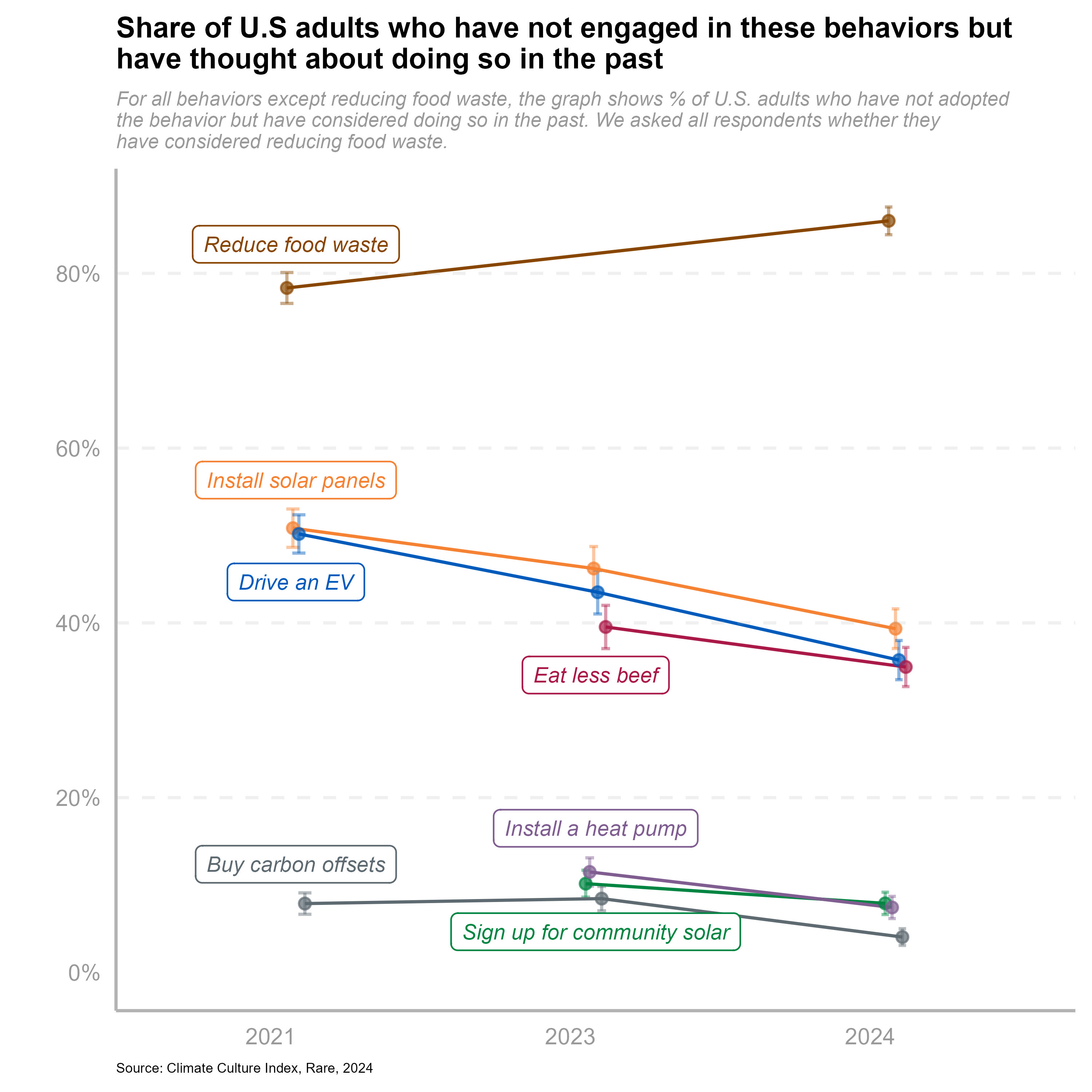
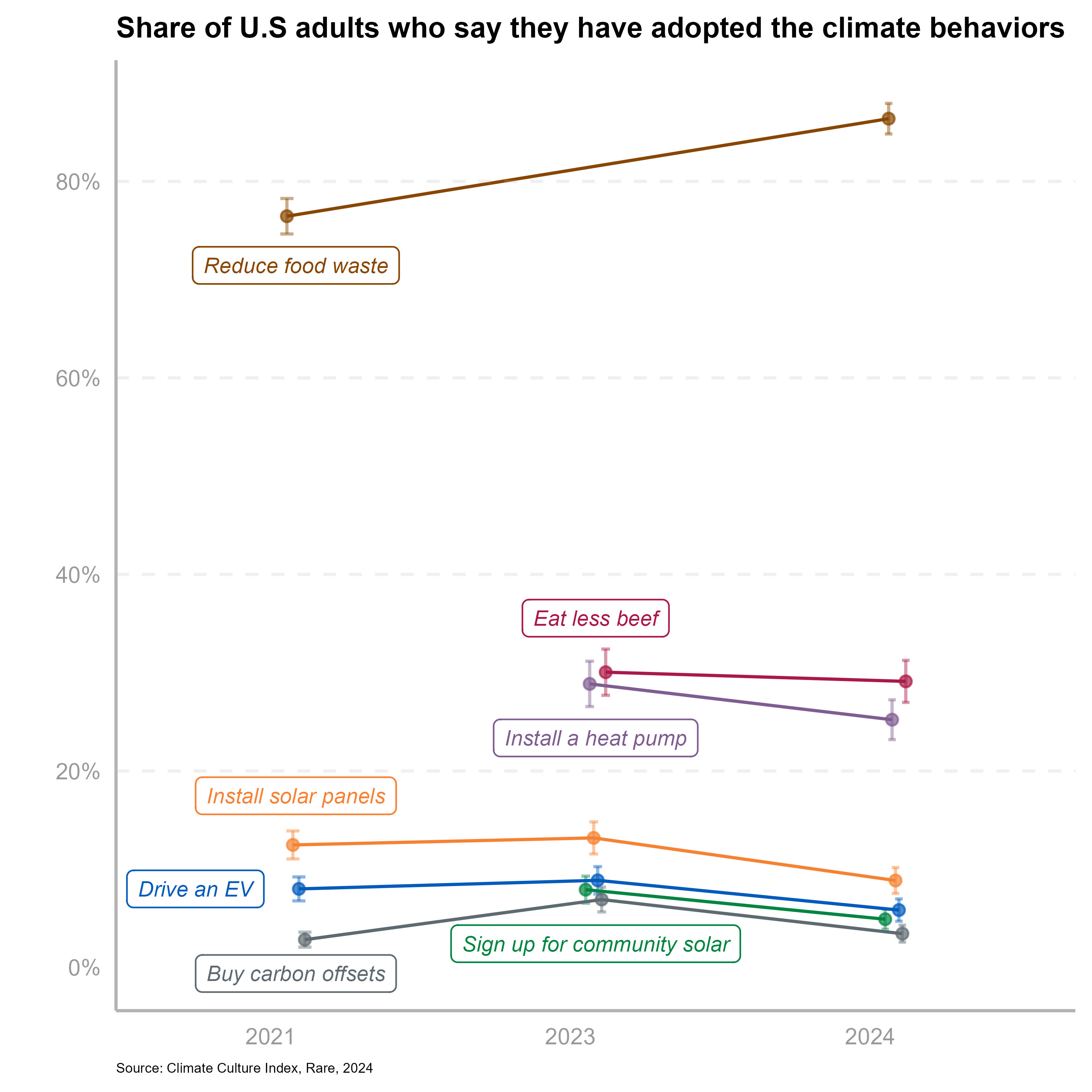
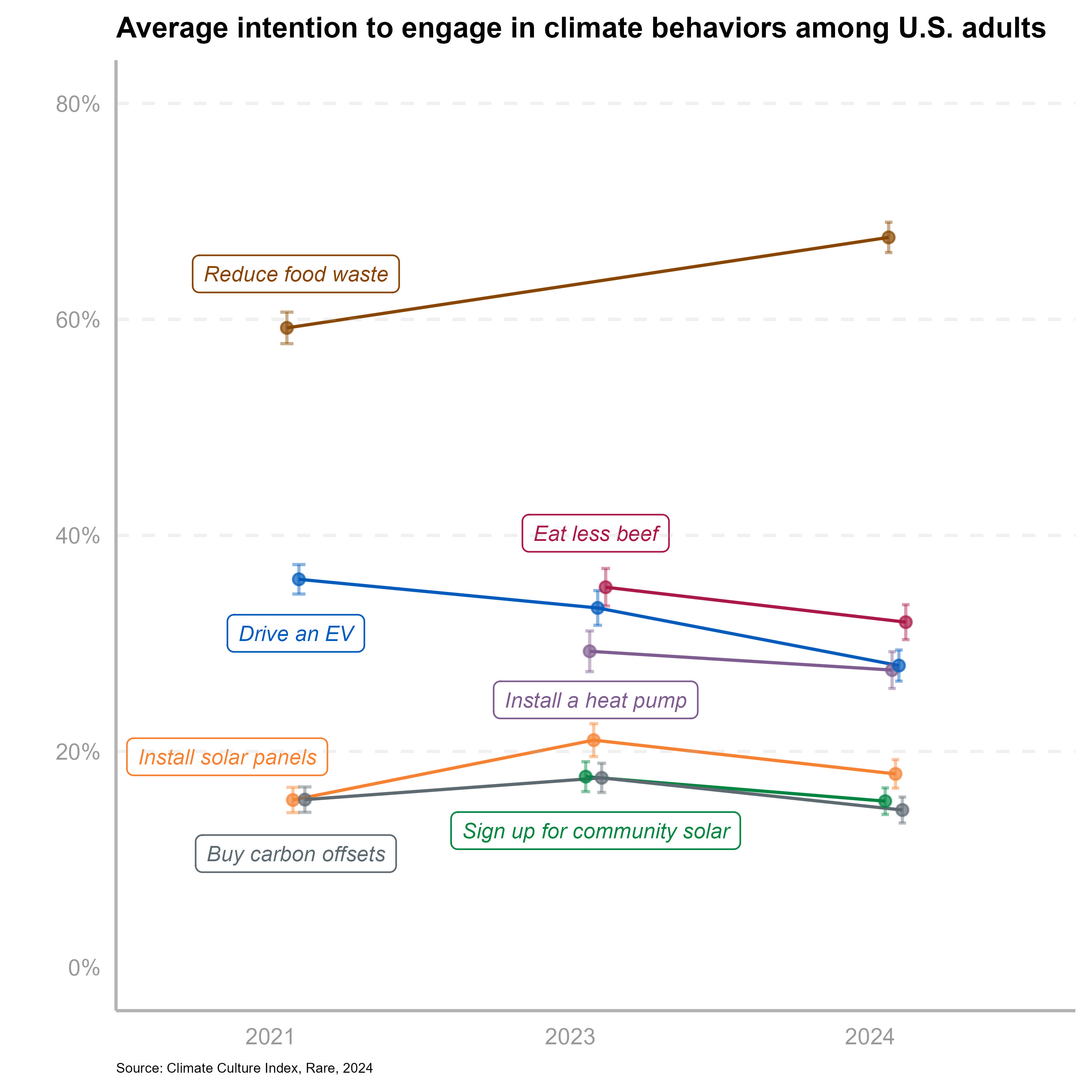
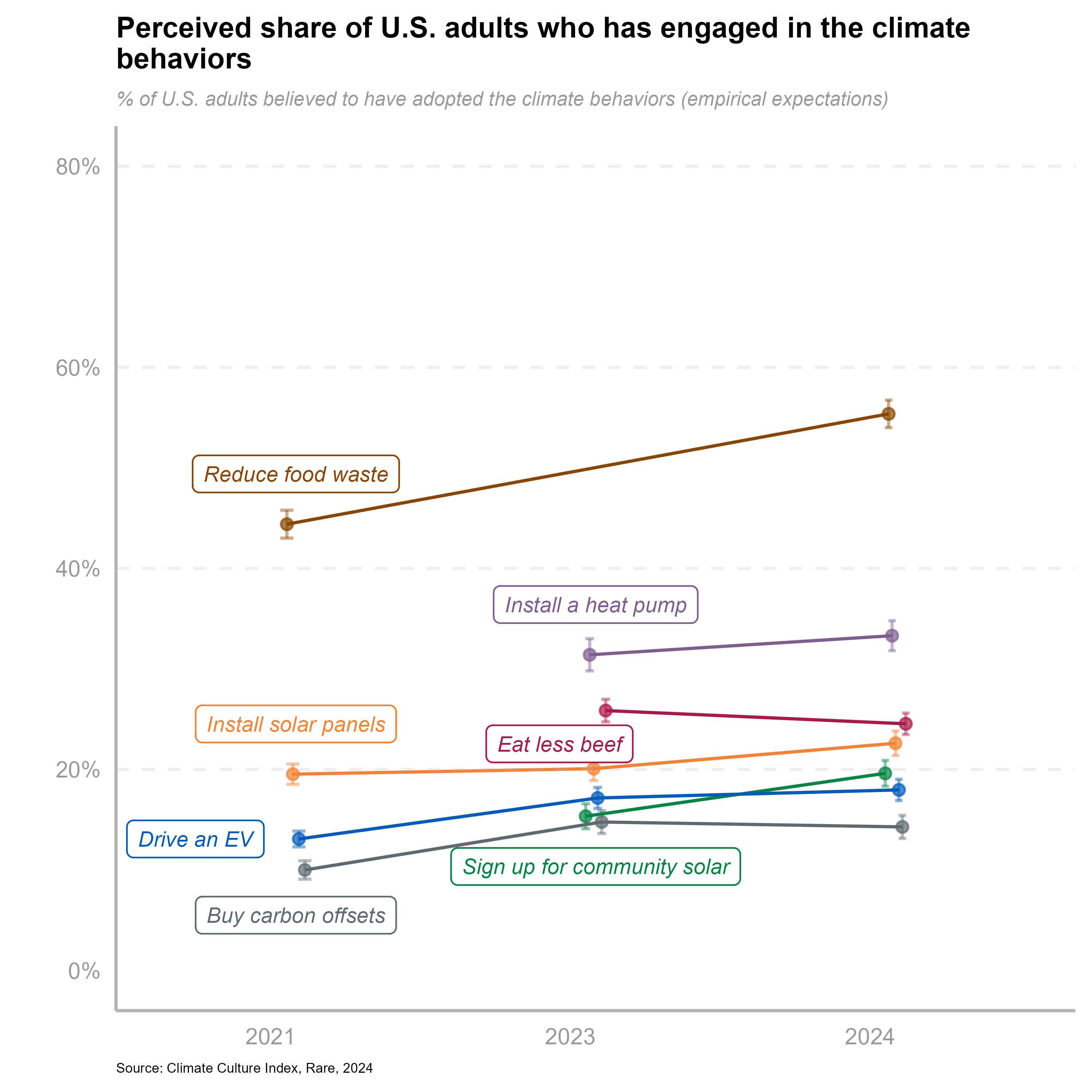
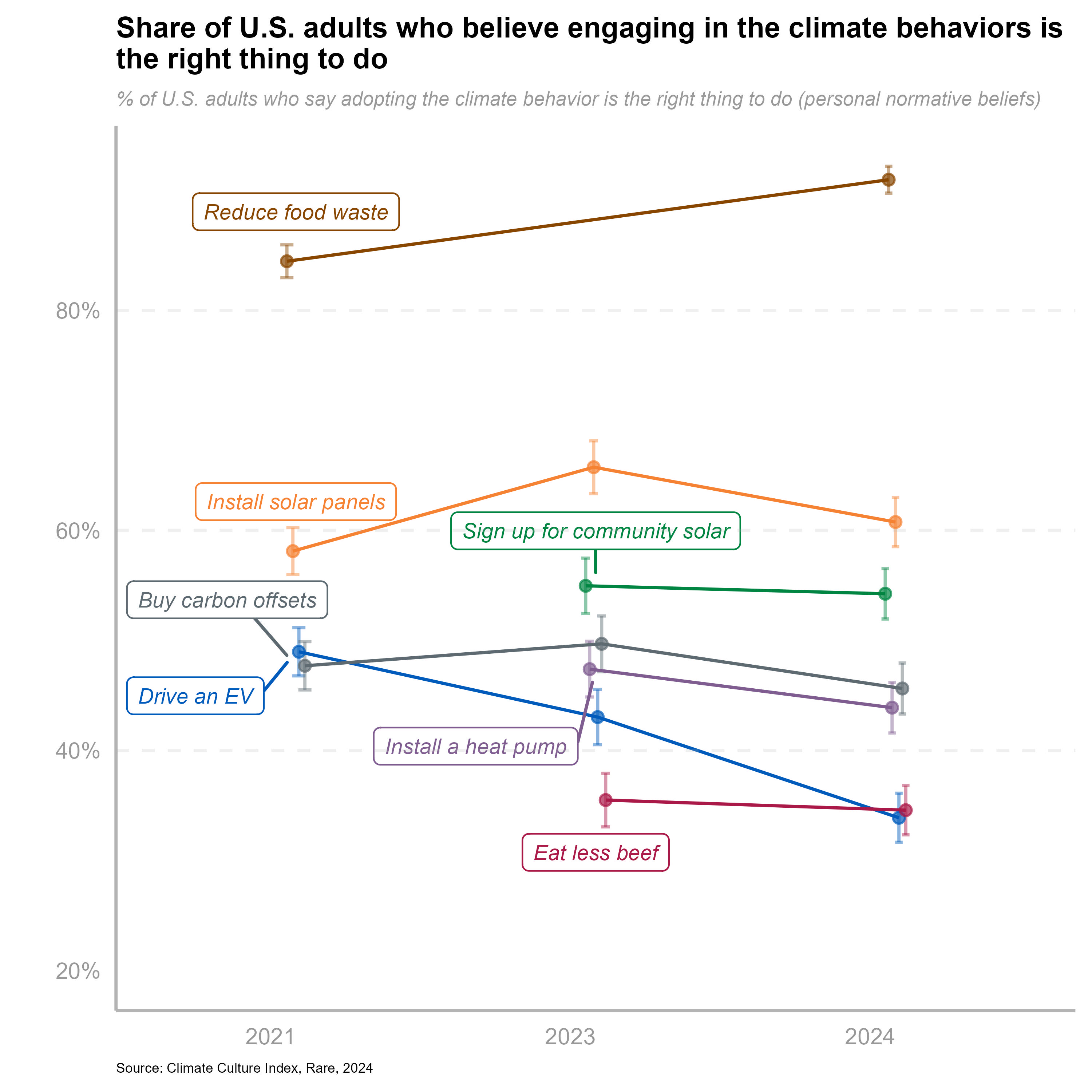
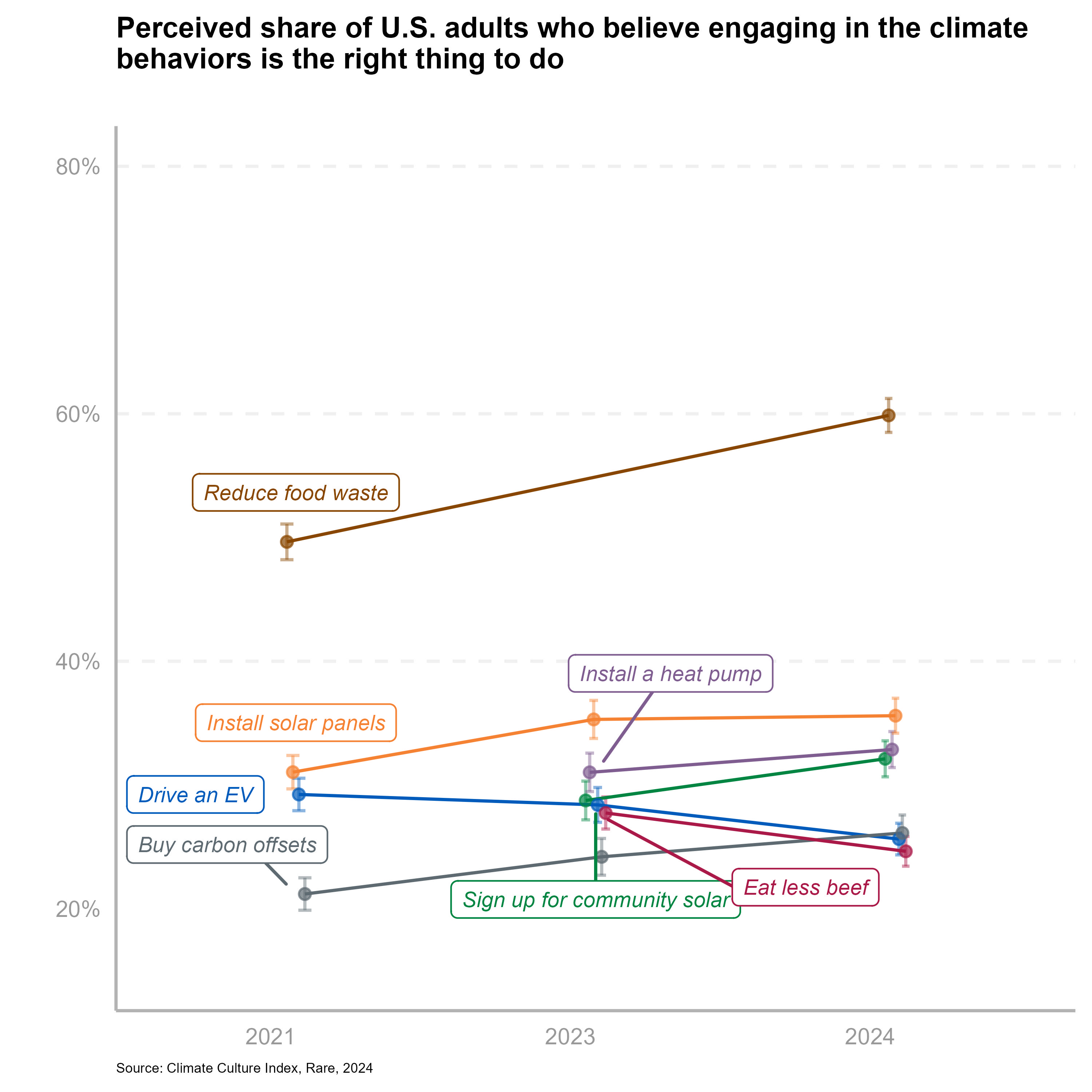
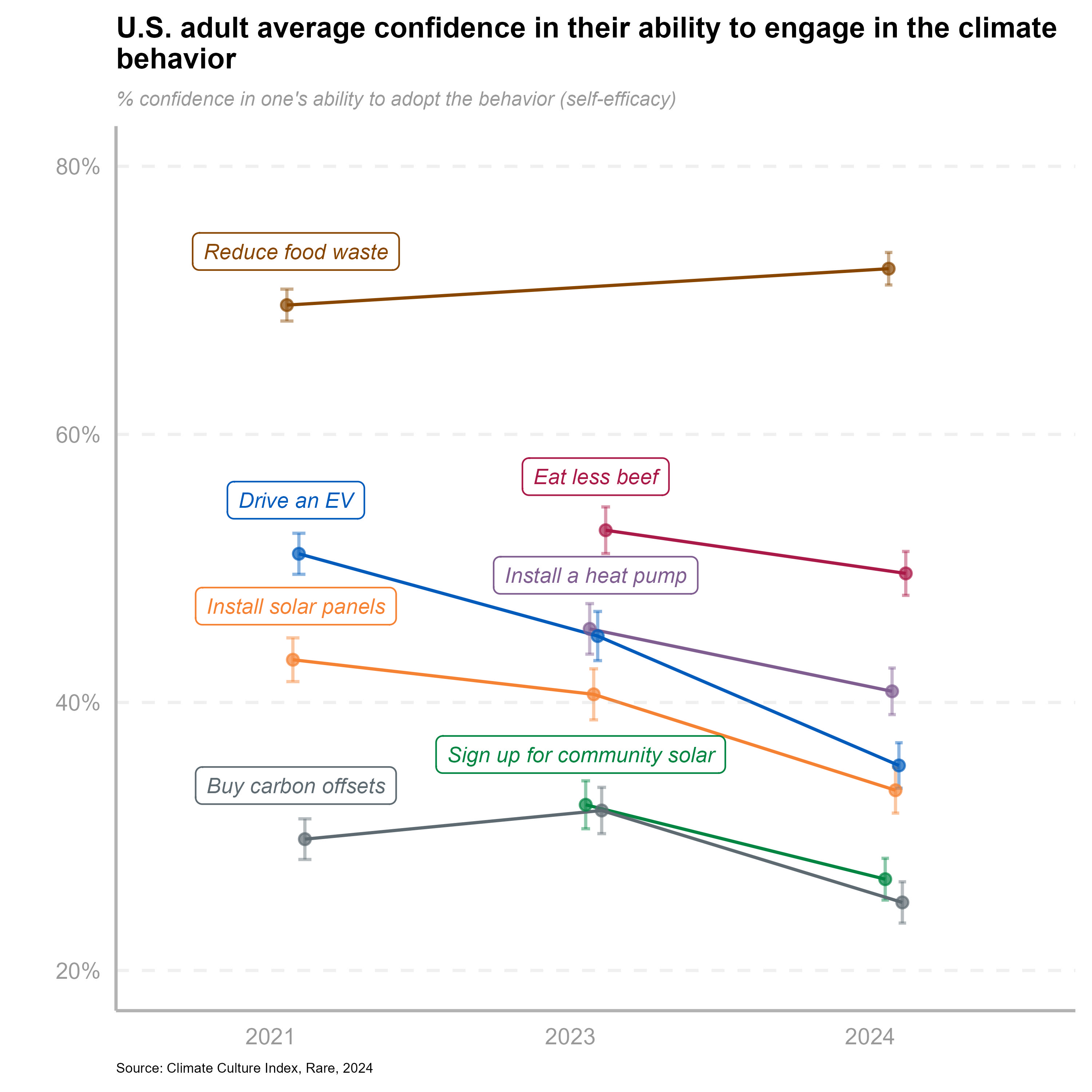
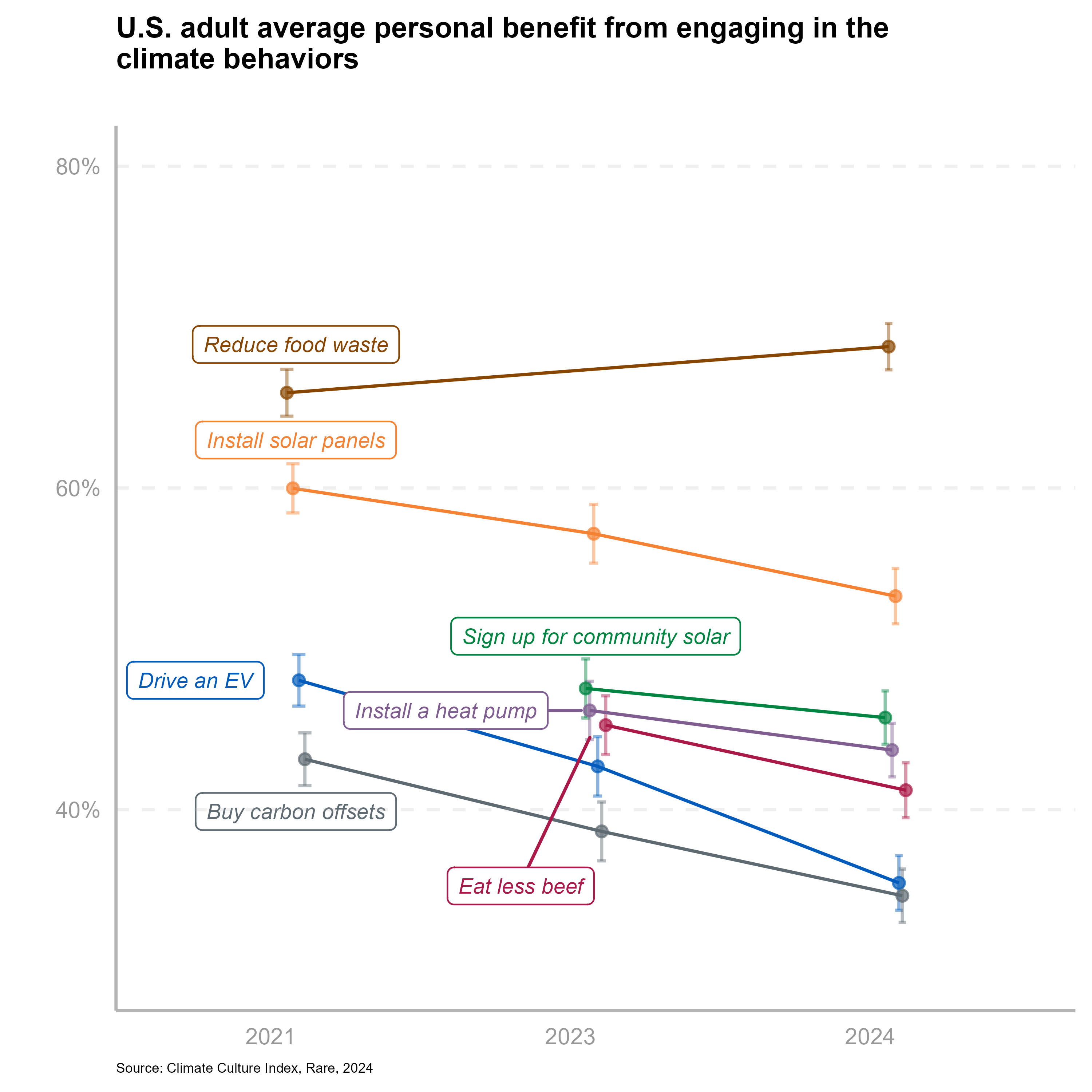
Normative Support Gap

Policy Support Gap
